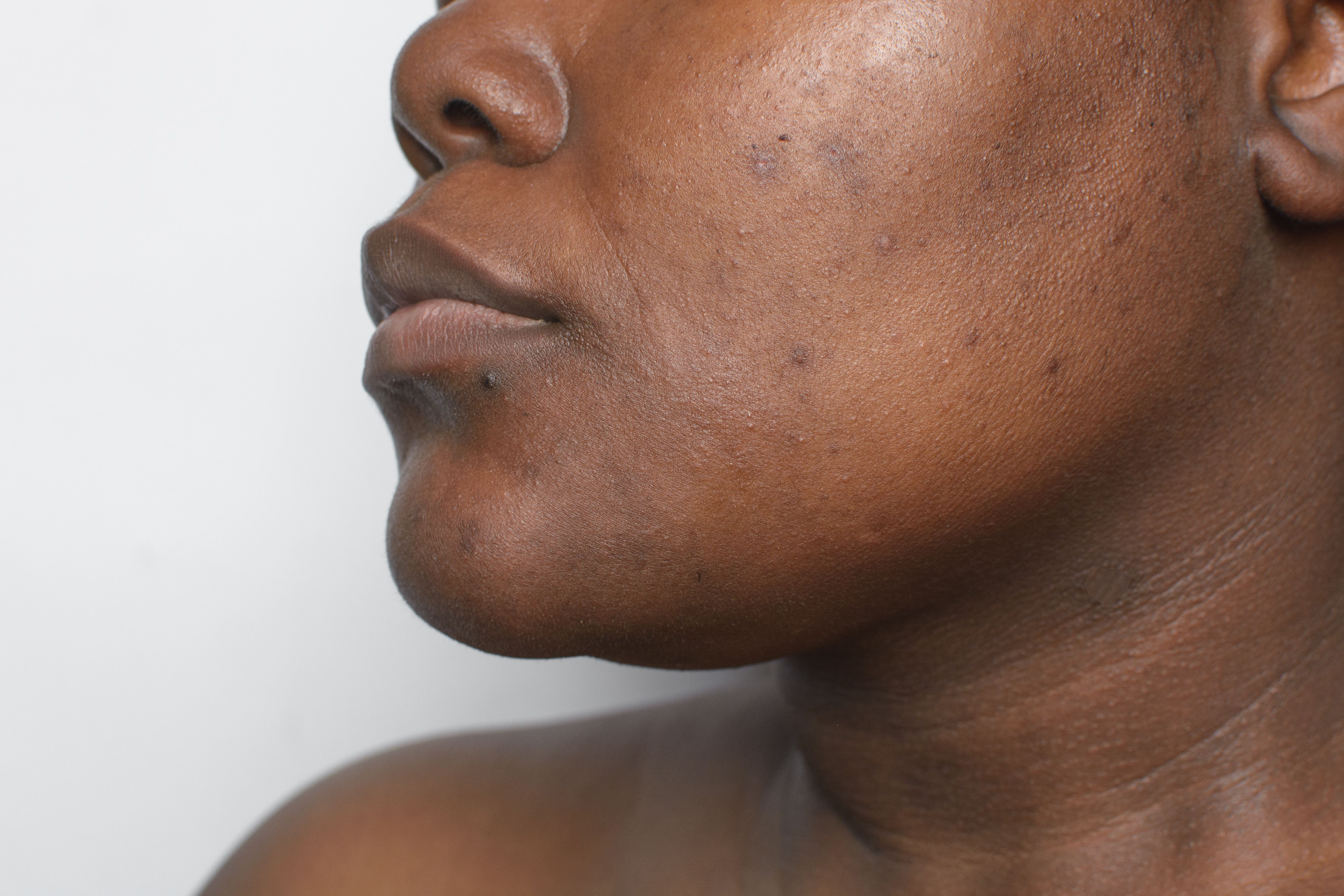- Acne
- Actinic Keratosis
- Aesthetics
- Alopecia
- Atopic Dermatitis
- Buy-and-Bill
- COVID-19
- Case-Based Roundtable
- Chronic Hand Eczema
- Drug Watch
- Eczema
- General Dermatology
- Hidradenitis Suppurativa
- Melasma
- NP and PA
- Pediatric Dermatology
- Pigmentary Disorders
- Practice Management
- Precision Medicine and Biologics
- Prurigo Nodularis
- Psoriasis
- Psoriatic Arthritis
- Rare Disease
- Rosacea
- Skin Cancer
- Vitiligo
- Wound Care
Article
PMC48 Probiotic Strain Demonstrates Promise in Hyperpigmentation
Author(s):
Pediococcus acidilactici demonstrated significant clinical efficacy and potential in treating hyperpigmentation.
Pediococcus acidilactici (PMC48), a probiotic strain, demonstrated significant clinical efficacy in improving the appearance of hyperpigmented skin.
this_baker/AdobeStock

In a recent study,1 researchers sought to determine the role of probiotic strains, such as PMC48, in treatments for skin-related concerns, particularly in cases of hyperpigmentation. They cited minimal efficacy and safety results for currently available melanin-regulating technologies, which typically involve inhibiting melanin biosynthesis. Furthermore, they noted that some probiotic strains, including Bacillus subtilis, Lactobacillus helveticus, and Leuconostoc mesenteroides, have demonstrated efficacy in skin-lightening through inhibiting melanin synthesis.
Researchers conducted a microbial safety analysis, thermal stability tests, tyrosinase inhibition test (L-DOPA), and in vitro cytotoxicity assay of 2 variations of skin toner, containing a combination of purified water, glycerin, 1,2-hexanediol, sodium citrate, and citric acid; 1 variation, however, contained a PMC48 culture supernatant. Prior to the start of the study, researchers conducted a skin irritation patch test on 32 adult participants.
The 8-week clinical trial involved 22 female participants between the ages of 19 and 60 who did not have an underlying history of chronic conditions, including skin conditions. All participants fell under Fitzpatrick skin types II, III, and IV.
Participants who were pregnant, lactating, or had a history of photoallergy, photosensitivity, topical steroid use, or use of skin-whitening products, were excluded from participation. Researchers also determined the minimal erythema dose (MED) for each prospective participant using ultraviolet radiation exposure on their forearms, ultimately including participants of varying skin types and MED tolerances.
Within the study, participants were divided into both a research and control group. Members of the research group received the skin toner solution containing the PMC48 culture supernatant, while members of the control group received the variant of the solution without the PMC48 culture supernatant.
From day –7 to day 0 of the trial, participants applied the skin toner solution on a twice-daily basis. From the end of the first week onward, researchers evaluated participants for abnormal skin reactions and used a visual evaluation scale to determine the skin’s level of pigmentation. Additionally, they used a chromometer to measure skin brightness, a Mexameter to measure skin melanin index (MI), and a corneometer to measure the skin’s moisture content.
Researchers also collected skin samples after participant treatment in order to examine the skin’s microbial composition.
They determined the skin toner formula met criteria for microbial safety, noting that the PMC48-containing solution was free of toxic components. The PMC48 solution did not result in skin irritation or allergic reactions upon use.
The solution containing the PMC48 culture supernatant also demonstrated antityrosinase activity, ultimately demonstrating a dose-dependent inhibitory effect on melanin biosynthesis. Concentrations of 25% to 100% demonstrated significant tyrosinase inhibition.
“The Pediococcus acidilactici PMC48 strain has skin-whitening, hyperpigmentation-inhibiting, and melanin-degrading effects. Eight weeks of PMC48 treatment significantly improved pigmented skin by decreasing the melanin index through its tyrosinase inhibition capacity,” study authors wrote. “In addition, 16S ribosomal RNA-based amplicon sequencing analysis showed a distinct increase in the family Lactobacillaceae without changing other skin microbiota. Furthermore, PMC48 improved skin moisture content and skin elasticity. These resultsdemonstrate that P. acidilactici PMC48 can be a potential probiotic for the cosmetic industry against different skin disorders.”
Reference
- Park H, Seo H, Kim S, et al. Clinical effect of pediococcus acidilactici PMC48 on hyperpigmented skin. J Cosmet Dermatol. Published online June 28, 2023. doi:10.1111/jocd.15891
Newsletter
Like what you’re reading? Subscribe to Dermatology Times for weekly updates on therapies, innovations, and real-world practice tips.










